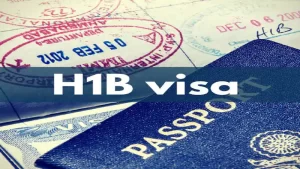Marlies Haselton has called Britain home for quite 30 years. The Dutch national married a Briton, had her children there, and considers herself “part and parcel” of the U.K. Until Britain’s divorce from the ecu Union, she had never given an idea to her immigration status within the U.K.
Thousands of EU citizens may lose status to measure in UK
Post-Brexit residency: Many EU citizens face uncertainty as UK deadline arrives
Tory Eurosceptics examine Brexit trade affect EU after PM’s plea
Daily politics briefing: April 28
EU summit to mention Brexit talks progress not enough
Haselton, 55, is among the many Europeans who have freely lived, worked and studied within the U.K. for many years , but whose rights are not any longer automatically granted thanks to Brexit. Britain’s government introduced a “settlement” plan for the country’s large European migrant community in 2019, and therefore the deadline for applications is Wednesday.
From Thursday, any European migrant who hasn’t applied will lose their right to figure , rent housing and access some hospital treatments or welfare benefits within the U.K. they’ll even be subject to deportation.
Meanwhile, the liberty of movement that over 1 million Britons have long enjoyed in EU countries is additionally ending. Those applying for post-Brexit residency permits in France also face a deadline on Wednesday.
Campaigners within the U.K. are worried that tens or maybe many thousands of Europeans might not have applied by the deadline. Many older people that have lived within the U.K. for many years aren’t aware they need to use , and official figures show that only 2% of applicants were 65 years old or older. Many parents also don’t realize they need to use for his or her children, migrants rights’ groups say.
Other vulnerable people, like an estimated 2,000 children in social care, also risk falling through the cracks and ending up with no status .
For Haselton and lots of others, it’s a flash that drives home the impact of Britain’s referendum to go away the EU five years ago. Although Haselton successfully received her “settled” status, meaning she will reside permanently within the U.K., she said the entire process has made her feel insecure about the life she inbuilt Britain.
“I don’t feel settled,” she said. “I’m concerned about the longer term . I just don’t have a secure feeling about growing old here as a foreigner. The sense of home I wont to have is gone.”
Britain’s government says some 5.6 million people — the bulk from Poland and Romania — have applied, much more than the initial estimates. While about half were granted settled status, some 2 million migrants who haven’t lived within the U.K. long enough were told they need to place within the paperwork again once they have completed five years of residency within the country.
And about 400,000 people are still in limbo because they’re waiting to listen to a choice , said Lara Parizotto, a campaigner for The3million, a gaggle found out after the Brexit referendum to lobby for the rights of EU citizens within the U.K.
“These are the people we’re hearing from tons ,” she said. “You want to be secure and safe, you would like to continue planning for your future … you’ll imagine how complex it’s to not have that certainty in your life immediately when things are close to change such a lot .”
Daria Riabchikova, a Russian woman who applied in February because the partner of a Belgian citizen living within the U.K., said it has been “incredibly frustrating” waiting four months for her paperwork to be processed. She fears the delay will affect a replacement job she is close to start.
“I desire a third-rate citizen, despite working here and paying taxes with my partner and living here, and contributing to the past year of struggle with the pandemic,” she said. “Now I can’t even have my straightforward application processed on time.”
Figures aren’t available to point out exactly what percentage people will have missed the deadline. But even alittle percentage of the ecu population within the U.K. would total tens of thousands of individuals , Parizotto said. In recent weeks, the 25-year-old Brazilian-Italian has travelled with other volunteers across England to urge European communities working in rural farms and warehouses to check in before it’s too late.
One key concern is that the immigration policy could leave a disastrous legacy almost like Britain’s “Windrush” scandal, when many from the Caribbean who legally settled within the U.K. decades ago were wrongly trapped in tough new government rules to clamp down on illegal immigration.
Many within the “Windrush generation” — named after the ship that carried the primary post-war migrants from the West Indies — lost their homes and jobs or were even deported just because they couldn’t produce paperwork proving their residency rights.
Many Europeans, especially children whose parents did not apply, “won’t necessarily realize they need lost their status directly ,” said Madeleine Sumption, director of Oxford University’s Migration Observatory.
“For some, it’ll only become clear afterward — for instance , once they get a replacement job or got to be treated in hospital,” she said. “It could also be more years before the legal, political, economic and social consequences start to emerge.”
Britain’s government has conceded that it’ll give the advantage of the doubt to people that have “reasonable grounds” for applying late, but that hasn’t eased campaigners’ worries. Many, including those that secured settled status, not feel confident in their future in Britain.
Elena Remigi, a translator originally from Milan who founded “In Limbo,” a project to record the voices of EU nationals within the U.K. since the Brexit referendum, said many Europeans say they still feel betrayed by how their adopted country treated them.
“It is basically sad that folks who were living here before are now made to feel unwelcome and need to leave,” she said. “That’s really hard for a few people to forgive.”
Haselton, the Dutch migrant, said her British husband is mulling moving the family to Netherlands as an immediate consequence of Brexit. She is torn.
“I still love this country, it might break my heart if I had to maneuver ,” she said. “At an equivalent time I’m unsure i would like to remain . When it involves a way of feeling that you simply belong, that isn’t something that you simply can do with a bit of paper.”







